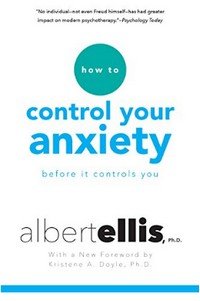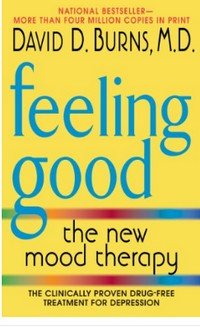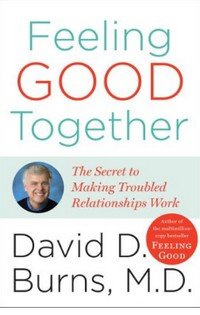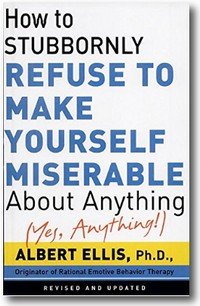|
When we offer our motto “REBTraining teaches you how to get more of what you want and less of what you don’t want,” it can sound like pablum you might hear at a Tony Robbins Seminar. There is a danger it might seem materialistic and grasping, implying that what we are peddling is the old chestnut of health, wealth and happiness, with a heaping helping of How to Win Friends and Influence People. Not that there is anything wrong with health, wealth and happiness or of having friends and influence. Far from it. And REBTraining can definitely help you get more of those things. But in the phrase “…get more of what you want” I think the emphasis should be on the “what you want” because no two people want the same things, and for great numbers of people, health, wealth and happiness are simply not high priorities in their hierarchy of wants. Another way of putting it; everyone’s idea of happiness involves different things. Some of the things that people want beyond health, wealth and happiness may be difficult to quantify and measure but are nonetheless real and important, such as, and in no particular order . . .
|
While this list is by no means exhaustive, it becomes immediately clear that while it may be helpful or even necessary to have health, wealth, happiness and influence in order to acquire some of the things on the list, the things or qualities themselves are not defined by health, wealth, happiness and influence. For example, playing the piano may involve in varying degrees; creativity, mastery, leisure and/or aesthetics, but is not directly related to or dependent upon health, wealth, happiness and influence.
|
  |
 |
 |
 |
 |
 |
 |
 |
|
|
| Perhaps now, our motto, |
|
will have more resonance for you, and make it easier to focus on the ways that REBTraining can be helpful to you. |
We are reframing Rational Emotive Behavior Therapy as Rational Emotive Behavior Training, and to emphasize this have registered the name REBTraining.com. Why? Among the many reasons is that the new name better reflects the reality that REBT has always involved therapeutic education more than getting in touch with feelings. This is the association many still have of 20th Century therapies which involve a lot of crying, kleenex, venting, and “carrying on” while perhaps exploring memories of childhood conflict and trauma. This passe association of marathon talking and crying–perhaps for years on end–is still referred to as talk therapy. While this stereotype was never universally accurate, it was correct enough to have embed itself into literature, the media and popular culture.
Of course everyone needs a little “tea and sympathy” once in awhile, and it serve as important dynamic of any therapy, at least from time-to-time. However, I would say that REBTraining is possibly much more stingy with it than some others. However, REBT significantly involves a robust philosophy drawing upon Stoicism and General Semantics. REBTraining teaches people how to change their unhelpful, dysfunctional thinking so that they can feel better, so that they can make more rational life decisions, so that they can behave in ways which are more rewarding and not self-defeating. Thus we say that REBTraining can help you get more of what you want and less of what you don’t want. REBT calls on the client to do a lot more than talk. It pushes for a basic philosophical change so that people quit upsetting themselves, especially about things they can do nothing about. This clears the way for people to pursue their heart’s desire and find greater fulfillment and happiness.
 |
 |
 |
 |
To that end REBTraining is a vital and necessary antidote to the silly, permissive New Age pie in the sky woo–woo which promises so much but has delivered so little to so many, leaving them frustrated and depressed, or worse, feeling guilty for being unable to make the “magic” work. This reminds us of the wonderful scene from the 1970 film Little Big Man between Dustin Hoffman and Chief Dan George, “Well, sometimes the magic works, sometimes it doesn’t.”
REBTraining is also the vital and necessary antidote for a generation of young people who have been seduced and corrupted by intersectionality in the academy to believe they are entitled to never experience discomfort, and that universities serving as loco parentis are obliged to protect them from any ideas which might cause discomfort and distress. This has the unfortunate consequence of stifling freedom of thought and freedom of expression. Ironically, while diversity is the rallying cry for many of this generation, this does not extend to diversity of world view and opinion. Moreover and more relevant to this article, these regressive attitudes are antithetical to the REBT-CBT premise that it is not people, places and things “out there” that disturb and upset us. Rather we upset and disturbed ourselves by our irrational beliefs and distorted thinking about events out there.
|
 |
 |
 |
 |
 |
 |
 |
 |
REBTherapy is clearly therapeutic, unequivocally, unapologetically a powerful and effective therapy for those suffering from emotional disturbance. However, in one sense, it may be unfortunate that it came into the culture via the gateway of psychology rather than coaching, philosophy, religion, education or “self-improvement.” In practice, it is a little bit of all of those things. Of course, if you read Stoic Philosophy, Stoicism, much of it sounds remarkably modern, and very much like REBT-CBT which it predates by 2,000 years! For example,
|
|
You cannot force a linguist shift such as from therapy to training. It either catches on or it doesn’t. And while the word training represents a big improvement in my opinion, it does leave something to be desired. When I hear the word, it reminds me a little of trained animal acts at the circus or on the old Ed Sullivan Show.
Ed Sullivan, “Really big shoo!’
Of course, we don’t want to have our clients jumping around and doing circus tricks thinking they have accomplished something. Nonetheless, training does underscore and emphasize that REBT is a skill set, is something you learn to do like playing the piano, not someplace you go where something is done to you by a therapist.
Please enjoy this website. More important, please use it to help yourself learn and grow. We value your comments, questions, suggestions, opinions and feedback. Always feel free to contact me with any questions or if there is anything I can do to be helpful.
Fondly,
![]()
Rex Alexander
http://REBTinfo.com
Rex@REBTinfo.com


![]()
Originally posted 2019-02-10 06:03:12.
- Acceptance is the soft underbelly of REBT! - Tue 3 Feb 26





